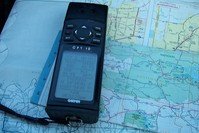 In Commonwealth v. Johnson, the Supreme Judicial Court found that it was not error for the trial court to admit data from the defendant’s GPS tracking device at the defendant’s trial for breaking and entering a building during the daytime with the intent to commit a felony, under G. L. c. 266, § 17 and larceny over $250, under G. L. c. 266, § 30.
In Commonwealth v. Johnson, the Supreme Judicial Court found that it was not error for the trial court to admit data from the defendant’s GPS tracking device at the defendant’s trial for breaking and entering a building during the daytime with the intent to commit a felony, under G. L. c. 266, § 17 and larceny over $250, under G. L. c. 266, § 30.
The background was as follows. “On July 8, 2013, the defendant was charged with having committed various crimes stemming from an incident of domestic violence on Nancy Jones that took place … in the Dorchester section of Boston.” At the defendant’s arraignment, the judge imposed several conditions of pretrial release, to which the defendant formally agreed, “includ[ing] GPS monitoring, staying away from Jones’s home address in Dorchester, and staying away from Jones herself.” On August 31, 2013, Sarah Dundon returned from a six-day vacation trip to find that her home in the West Roxbury section of Boston had been broken into and some jewelry had been stolen. “At some point thereafter, Norfolk County law enforcement officials were conducting a criminal investigation into the defendant. As part of that investigation, they requested that … the probation department review and analyze the data captured by the GPS monitor imposed as a condition of the defendant’s pretrial release in the Dorchester case.” An employee of the probation department’s electronic monitoring program (ELMO) “noticed and mapped the defendant to [Dundon’s] home in West Roxbury, at about 4:20 A.M. on August 29, 2013, where the GPS data showed he remained for approximately fifteen to thirty minutes.” Based on this information, a criminal complaint was issued, charging the defendant with the offenses at issue in the present case. The defendant filed a motion “to suppress the GPS data that was obtained without a warrant based on his claimed expectation not to be subjected to extended GPS surveillance by the government.” In the motion, “he averred that as conditions of his pretrial release on his Dorchester case, he was required to stay away from Jones’s address, i.e., an exclusion zone, and he was required to wear a GPS device to monitor whether he violated that condition. The defendant claimed that he did not know he would be monitored and tracked everywhere he went, and that he had not agreed to that condition.” The judge denied the motion. On appeal, “the defendant claim[ed] that the judge erred in admitting the GPS data because the ‘search’ conducted by the police was unreasonable in light of his expectation of privacy in that data.”
In its decision, the Appeals Court opined that the judge properly denied the defendant’s motion to suppress, because the motion “failed … to establish that the use of the GPS location data constituted a search in the constitutional sense.” The Court stated, “To determine whether a search in the constitutional sense [took] place, the defendant [was required to] establish that he ha[d] an expectation of privacy in the data transmitted by his GPS device and stored in the ELMO system.” In making that determination, stated the Court, “we must evaluate whether this defendant, by his conduct, manifested a subjective expectation of privacy in the data,” “[t]hat is, whether this defendant [showed that he had] made an effort to preserve the evidence in question as private.” In the Court’s view, the defendant failed to make such a showing. “Indeed, as a condition [of] his consented-to pretrial release, the defendant agreed to wear the device at all times and to permit continuous supervision of his whereabouts by the probation department’s monitoring of the device and its transmissions. On the pretrial release order itself, which the defendant signed, he agreed … to observe all of the conditions of [his] probation, including the GPS monitoring of an order to stay away from Jones, … a condition without geographic limitations.” Furthermore, stated the Court, “even if the defendant harbored a subjective expectation of privacy in the GPS data, we nonetheless conclude that society would not be ‘willing to recognize that expectation as reasonable.’ Commonwealth v. Montanez, 410 Mass. [290,] 301 [1991].”
Law enforcement is developing and using new technologies in criminal investigations every day. If you or a loved one is charged with a crime that involves the use of such technologies, it is of the utmost importance that you have a skilled and creative lawyer to help fight against the admission of any such evidence at your trial. Attorney Daniel has successfully and creatively litigated numerous motions to suppress. Put his experience to work for you – call for a free consultation today.
 Massachusetts Criminal Lawyer Blog
Massachusetts Criminal Lawyer Blog

